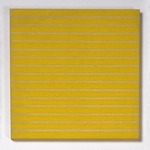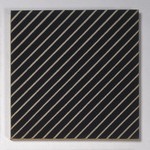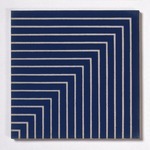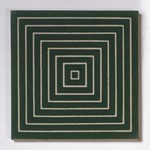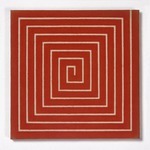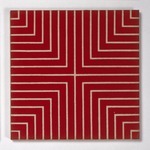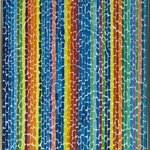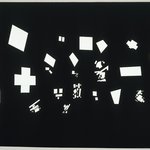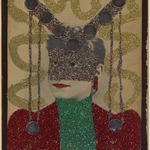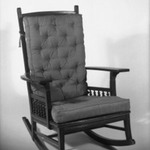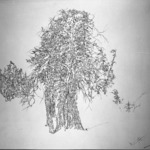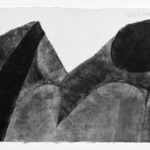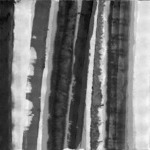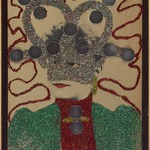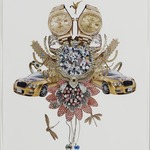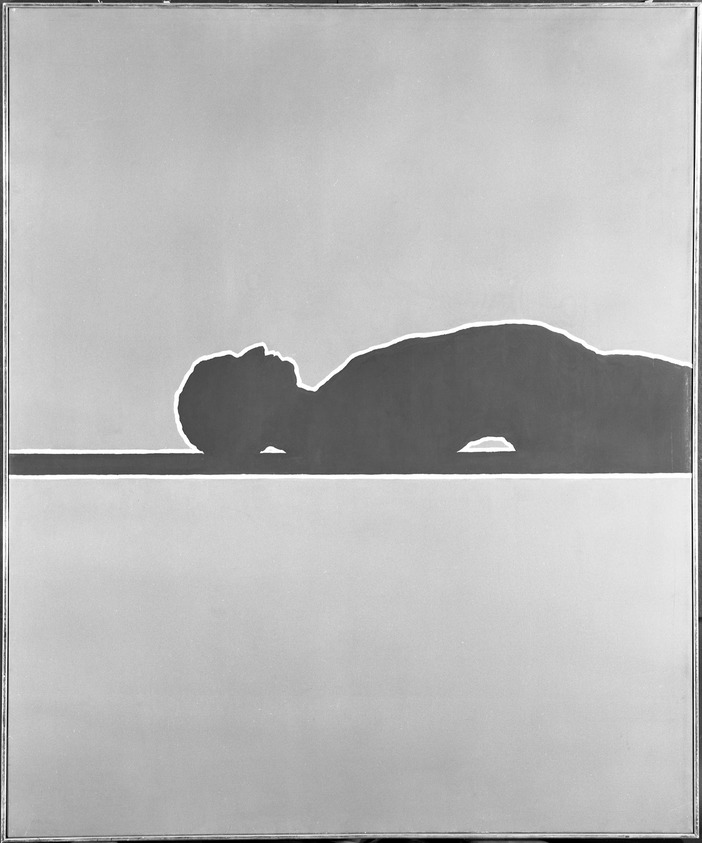
This image is presented as a "thumbnail" because it is protected by copyright. The Brooklyn Museum respects the rights of artists who retain the copyright to their work.
Ben Casey V
Idelle Weber
Contemporary Art
On View:
In the late 1950s and early 1960s Idelle Weber began adapting the style of eighteenth-century silhouette portraiture to the Pop idiom. All of the artist’s works included here feature this approach, which imbues her subjects with an anonymous, everyman character. Subjects like Ben Casey, the doctor-hero of a melodramatic 1960s television series, become flat representations of cultural stereotypes; for Weber, the literal flatness of the figures is analogous to the superficial renderings of pop culture characters. In other examples, Weber depicts the quotidian—people on an escalator or skipping rope—with a cold precision. In Munchkins I, II & III, Weber portrays nondescript businessmen in New York’s PanAm (now MetLife) building, one of the world’s largest office buildings at the time, in the middle of the drudgery of their daily commute.
MEDIUM
Acrylic on canvas
DATES
1962
DIMENSIONS
60 7/8 × 50 7/8 in. (154.6 × 129.2 cm)
frame: 61 × 51 × 1 1/2 in. (154.9 × 129.5 × 3.8 cm) (show scale)



SIGNATURE
Inscribed verso on canvas over top stretcher: " 50" x 60" 1962 ... IDELLE WEBER ...Ben Casey V - 1962 ..."
COLLECTIONS
Contemporary Art
ACCESSION NUMBER
79.135.1
CREDIT LINE
Anonymous gift
EXHIBITIONS
MUSEUM LOCATION
This item is not on view
CAPTION
Idelle Weber (American, 1932– 2020). Ben Casey V, 1962. Acrylic on canvas, 60 7/8 × 50 7/8 in. (154.6 × 129.2 cm). Brooklyn Museum, Anonymous gift, 79.135.1. © artist or artist's estate (Photo: Brooklyn Museum, 79.135.1_bw.jpg)
IMAGE
overall, 79.135.1_bw.jpg. Brooklyn Museum photograph
"CUR" at the beginning of an image file name means that the image was created by a curatorial staff member. These study images may be digital point-and-shoot photographs, when we don\'t yet have high-quality studio photography, or they may be scans of older negatives, slides, or photographic prints, providing historical documentation of the object.
RIGHTS STATEMENT
© artist or artist's estate
Copyright for this work may be controlled by the artist, the artist's estate, or other rights holders. A more detailed analysis of its rights history may, however, place it in the public domain.
The Museum does not warrant that the use of this work will not infringe on the rights of third parties. It is your responsibility to determine and satisfy copyright or other use restrictions before copying, transmitting, or making other use of protected items beyond that allowed by "fair use," as such term is understood under the United States Copyright Act.
For further information about copyright, we recommend resources at the United States Library of Congress, Cornell University, Copyright and Cultural Institutions: Guidelines for U.S. Libraries, Archives, and Museums, and Copyright Watch.
For more information about the Museum's rights project, including how rights types are assigned, please see our blog posts on copyright.
If you have any information regarding this work and rights to it, please contact copyright@brooklynmuseum.org.
RECORD COMPLETENESS
Not every record you will find here is complete. More information is available for some works than for others, and some entries have been updated more recently. Records are frequently reviewed and revised, and we welcome any additional information you might have.
